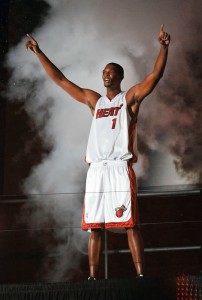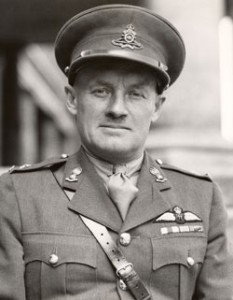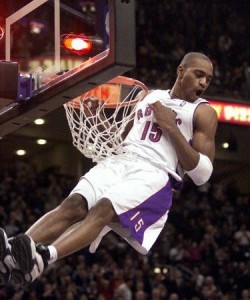Why is Chris Bosh going to be booed tonight?
Fans of the Toronto Raptors and Chris Bosh, the former star of the team, have been on a collision course since the National Basketball Association’s schedule was released two months ago.
Ever since Bosh announced he was signing with the Miami Heat, fans have been chomping at the bit to heckle and jeer him when he returns to Toronto. The wait is finally over, as Bosh’s Miami Heat will be at the Air Canada Centre tonight.
“I’m on another team,’’ he said to the Toronto Sun on Tuesday. “I would like it (to be liked) because that’s like a fairy tale ending or beginning, but that might not be the case.
“I’ll be ready for anything.”
Bosh can hope all he want, but he is going to be booed and heckled every time he steps in Toronto for the rest of his career. He will be subjected to as much vitriol as Vince Carter and Tracy McGrady are even though they’re years removed from their time on the Raptors.
Sadly, Bosh will probably never understand why he’s now the target of so much scorn in Toronto.
Ironically, the reason for the hatred is the same reason why he left: he doesn’t understand the character of the city.
He doesn’t understand that, ultimately, Toronto is a conservative place.
I don’t mean conservative in the modern, Glenn Beck, Republican sense, but the classical, small-c libertarian way, with an emphasis on individuality, entrepreneurship and, above all else, work ethic.
Founded by Governor John Graves Simcoe in 1793, the city historically stood in contrast to its Gallic cousin to the east, Montreal.
Largely inhabited by Protestants of British decent until the 1950s, Toronto’s early civic life focused on being loyal citizens to the crown, devoted members of their church and especially constructive members of the business world.
Those three characteristics earned Toronto nicknames likes “the Queen City” and “Toronto the Good”. Jokes about being able to shoot a cannon down Yonge Street on a Saturday night without hitting anyone were common. It was a staid, serious place.
Over time, monarchism and religiousness have faded and Toronto has become a more cosmopolitan, multicultural place with a vibrant nightlife. But that dedication to working hard and getting things done has remained at the core of the city.
The serious, stoic demeanour of Torontonians is often interpreted amongst other Canadians, perhaps fairly, as aloofness or even arrogance. There’s a coldness to how people carry themselves in Toronto, although defenders of the city would probably call it “walking with purpose”.
That indifference translates to the business world: It doesn’t matter who you are or where you’re from, as long as you put your nose to the grindstone and work hard, there’s a place for you in Toronto.
It’s that businesslike attitude has made Toronto the most multicultural city on Earth. It’s what makes Ontario’s capital the home of North America’s oldest continuously running Orangeman’s parade, but also allows Toronto to host one of the world’s largest LGBT Pride festivals every summer – the two seemingly contradictory events are held just weeks apart.
That spirit of efficiency and industriousness is what inspired Peter Ustinov to say “Toronto is New York run by the Swiss.”
Toronto’s workmanlike approach to, well, everything, has influenced the city’s sporting culture as well.
Like most things in Toronto’s sporting history it all starts with Conn Smythe.
The founder and long-time owner of the Maple Leafs favoured players who played a tough, relentless style of hockey. His motto of “If you can’t beat ‘em in the alley you won’t beat them on the ice” shaped the identity of the franchise, and set it apart from the free-wheeling finesse play of the rival Montreal Canadiens.
Smythe also set the tone for fan behaviour in Toronto, enforcing a strict dress code for fans at Leafs games. There’s a famous story that a wealthy couple rewarded their maid with their seasons tickets for the night. The morning after the game Smythe called the couple’s home, threatening to revoke their passes if anyone in their seats wasn’t wearing a shirt and tie or a proper Sunday dress, because the maid and her date hadn’t met Smythe’s high standards.
As a result, Torontonians have little interest in flashy athletes or raucous crowd behaviour. They want to quietly cheer on their teams and reward the players who work the hardest, not necessarily the ones with the best numbers.
Take the current roster of the Blue Jays as an example.
The most enduringly popular baseball player in Toronto this past decade is utility infielder John McDonald, despite his career .239 batting average.
I promise you that when the team’s line up is announced on opening day this spring the crowd reaction for perennial bench warmer McDonald will rival that of reigning home run king Jose Bautista.
Why? Because when McDonald does play, he puts his heart out on the field. A terrible batter, the 36-year-old veteran has won the love of Jays fans by never quitting on a play, and happily volunteering to do whatever the team needs him to do, including pitch relief or help out as the bullpen catcher.
Similarly, the Leafs have had a lengthy list of players renowned for their intensely physical style of play that has earned them the adoration of fans, even though their offensive numbers are far inferior to their contemporaries.
Players like Darcy Tucker, Tie Domi, Wendel Clark and Doug Gilmour will forever be deified in Toronto not for any goals they scored or any particularly outstanding play, but for the way they punished anyone who dared step on the ice against the Leafs.
Even when a truly gifted and talented player suits up for a Toronto franchise, it takes that same kind of hard-working, detail-oriented approach to win the fans’ devotion. Fortunately for sports fans in the city, the two best players to play in Toronto in the past 20 years are Roy Halladay and Mats Sundin, the quietest and most stoic athletes you can imagine.
This brings us to the Raptors and why poor Bosh is going to have hate, and possibly garbage, poured on him at the Air Canada Centre tonight.
It has little to do with loyalty – after all, both Halladay and Sundin left Toronto for greener pastures and they’re still beloved – and everything to do with how he left.
Whether they can articulate it or not, Torontonians are incensed by Bosh’s apparent rejection of their values.
Like Vince Carter before him, Bosh has left the Raptors to seek fame and fortune, to be flashy and find the spotlight of endorsement deals and American media attention. He left the cold, hard streets of Toronto for the glitzy nightlife of South Beach.
Worse yet, Bosh spent his last games with the Raptors sitting on the bench, nursing an injury. That is a cardinal sin to Torontonians: he was lazy.
Torontonians can understand, even appreciate, Halladay and Sundin leaving to win championships with better clubs - being rewarded for your hard work makes perfect sense to the city. But leaving for nightclubs and the easy life of sunny Florida? That is anathema.
It’s a shame, too. Bosh had showed so much promise when he was first drafted by the Raptors. Feature stories and interviews with the young rookie talked about how much work he was planning on doing in the off season. He openly discussed how he had to consume thousands of calories a day to bulk up for the more physical play of the NBA. Bosh liked to read. He was a computer science major in university.
In other words, he was perfect for Toronto.
Particularly after the disaster that was Carter’s time with the Raptors.
After all, Carter was a flashy style-over-substance player who briefly won the hearts of Raptors fans with the franchise’s deepest playoff run to date, only to blow it all by going to his university’s graduation ceremony instead of – that’s right – focussing on the task at hand and giving 100% to his team.
But slowly, the love affair between Bosh and Toronto soured. His charming videos of him working out became more self-aggrandizing and egocentric. It was less about industry and more about creating a brand.
Bosh had the negative example of Carter to try and avoid, but was also surrounded by positive role models like Matt Bonner, Jerome Williams, Morris Peterson and Jose Calderon. They’re all players who aren’t nearly as talented as Bosh, but who work hard on and off the court and were rewarded with the love and appreciation of the fans.
Instead, Bosh has opted to make a cameo on Entourage, film navel-gazing documentaries on getting his first tattoo and make over-the-top appearances with James and Dwyane Wade announcing how many championships they’re going to win with the Heat.
Bosh left because he felt like Toronto wasn't the place for him to reach the level, not just on the court, but off of it. He was right. It's no place for someone seeking fame, because they'll never find it here. The city spurns superstars.
Raptors fans, the supporters of any sports team in this city, will always favour the quiet, hard-working bench warmer over the flashy star with all the merchandise. Bosh's vision just couldn't line up with what the city demands of its sports heroes. That's not his fault, or Toronto's, it's just the way it's meant to be.
Unfortunately for Bosh, all this adds up to one thing: Toronto is going to show him no mercy. Not necessarily because he betrayed the city’s trust or because he is a bad player or because Raptors fans are particularly spiteful, but because he’s turned his back on the values the city holds most dear. Effort. Hustle. Hard work.
Chris Bosh is going to be booed tonight and for the rest of his career because he rejected the core value that governs behaviour in Toronto. He unknowingly struck at the city’s core principle, and Raptors fans will be unable to forgive him for that.


